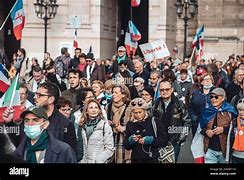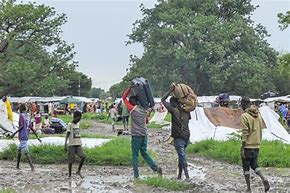WHO and Africa CDC have made a significant announcement that should capture everyone’s attention. The ongoing Mpox outbreak has been officially declared a Public Health Emergency of Continental Security (PHECS). This declaration, under Article 3, Paragraph F of the Africa CDC Statutes, empowers both organizations to lead and coordinate responses to significant health emergencies.
“This is something that should concern us all,”
stated by Dr. Tedros Adhanom Ghebreyesus, the WHO Director-General. The commitment from these health authorities aims to prevent transmission, treat those infected, and ultimately save lives in the affected countries. It’s a call for unified global action.
The urgency of this declaration is underlined by the increasing number of cases across Africa. At least 13 countries have reported Mpox outbreaks, with confirmed cases and deaths rising alarmingly in 2024. Dr. Jean Kaseya from Africa CDC emphasized the critical need for immediate and decisive action to combat this crisis effectively.
“Today, we declare this PHECS to mobilize our institutions…to act—swiftly and decisively.”
The gravity of the situation cannot be overstated as Dr. Kaseya highlighted how Mpox demands collective action on a global scale due to its severe impact on public health systems across nations. The declaration enables vital support mechanisms like resource mobilization, funding allocation, surveillance enhancement, and capacity building to tackle Mpox effectively.
“This is not just another challenge; it’s a crisis that demands our collective action.”
As reported by www.africahealthtimes.com , Professor Salim Abdool Karim chaired an emergency consultative group that unanimously agreed on the urgent need for international collaboration in response efforts against Mpox in Africa. Limited surveillance capabilities underscored an incomplete understanding of the outbreak’s severity.
“It’s clear that we’re facing a different scenario with far more cases…and a higher burden of illness.”
The link between HIV infection rates and Mpox fatalities raised further concerns about vulnerable populations at greater risk during this crisis period as mentioned by Prof. Karim during consultations.
Cross-border transmissions added complexity to containment strategies necessitating strategic vaccine distribution plans among affected regions as well as neighboring countries unprepared for potential outbreaks.
In light of past challenges faced during previous health emergencies like Ebola outbreaks, WHO prioritizes rapid responses through PHEIC declarations triggering coordinated efforts globally under International Health Regulations.
Mpox presents unique challenges given its modes of transmission require comprehensive preventive measures beyond borders which highlights crucial needs such as diagnostic advancements and vaccination programs in affected regions.
With limited resources available within African healthcare systems facing unprecedented strains from multiple disease outbreaks simultaneously requires enhanced international cooperation now more than ever before
according to experts in pandemic management at universities like Erasmus University Rotterdam.
As noted by Marion Koopmans from Erasmus University Rotterdam:
“A PHEIC raises the level of alert globally…investing in diagnostic capacity…would be challenging considering resource constraints.
“
“
In conclusion, addressing complex health crises like the ongoing Mpox outbreak demands collaborative efforts worldwide focusing on prevention strategies effectiveness alongside treatment interventions tailored specifically toward current regional needs ensuring sustainable outcomes for affected communities’ long-term well-being.
Attribution:
Original article reported by www.africahealthtimes.com (Link: https://www.africahealthtimes.com/africa-cdc-declares-mpox-outbreak-public-health-emergency.aht/)









Leave feedback about this